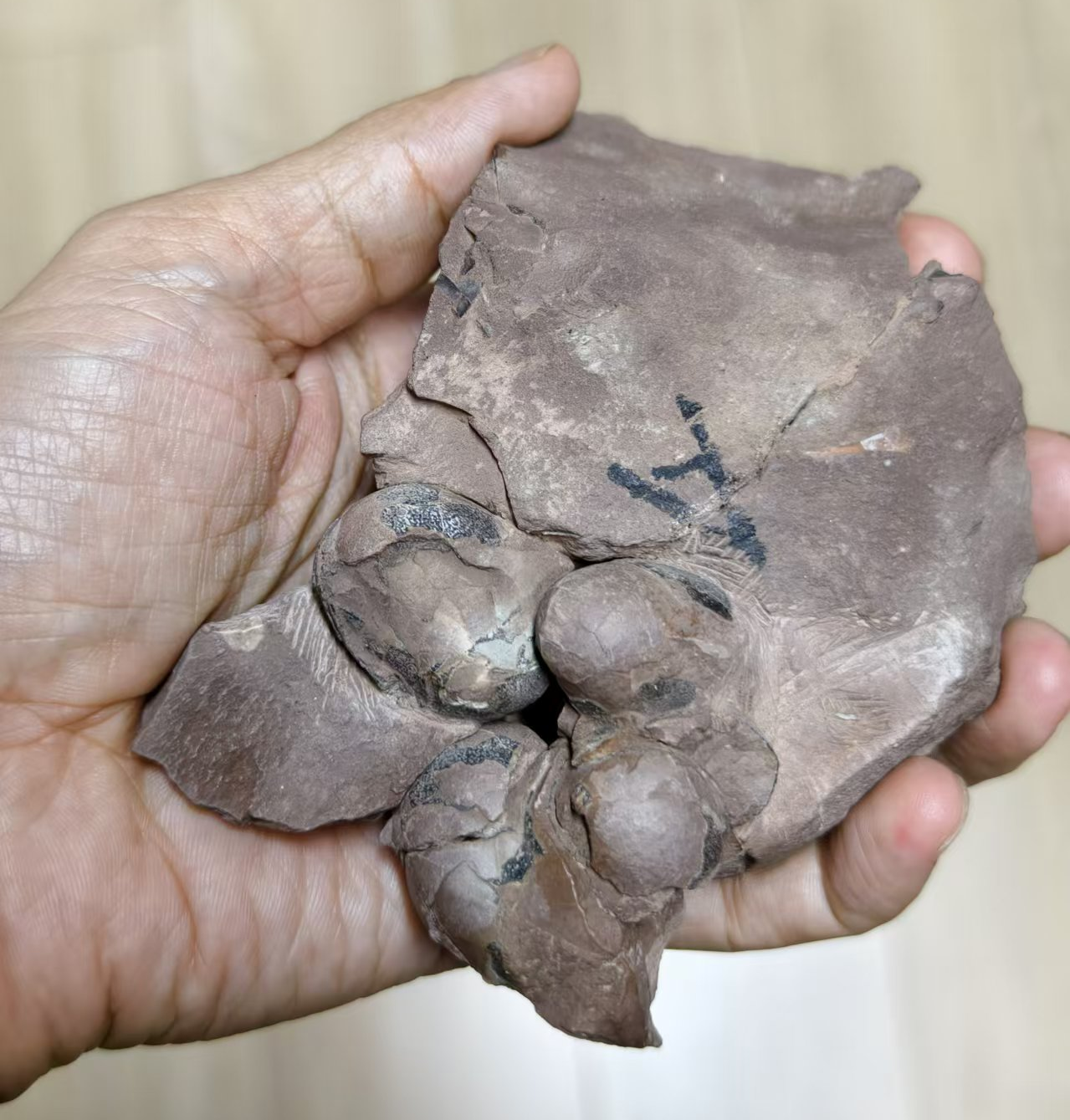Six complete eggs have been found in a partially preserved clutch in the Ganzhou Basin, China, which the discovery team report are the smallest dinosaur eggs ever found – at least if you don’t count modern birds. Features besides size indicate these are from a different species than any eggs we have seen before.
The Upper Cretaceous Tangbian Formation of the Ganzhou Basin has been one of the world’s richest hunting grounds for dinosaur eggs. However, the best-represented families, such as hadrosaurs and troodontids, are at least 11 centimeters long (4.4 inches), so at about 30 millimeters (1.2 inches) long and well off spherical, the new discovery stands out. Omelet-making would be definitely off the agenda, even if they were not only priceless relics, but more than 60 million years past their use-by date.
By comparison, the smallest previous non-avian dinosaur egg is 45 millimeters (1.8 inches) long.
Four of the eggs have retained what the authors of a paper describing them call “worm-like and nodular ornamentation”, but the fact they are compressed and deformed hinders efforts to reconstruct their original look. The clutch was initially larger, with some partially complete eggs surviving, while eggshells are distributed through surrounding rocks.

The clutch with human hand for size (much better than a banana).
Image courtesy of Dr Fenglu Han
In rare cases dinosaur eggs have preserved embryos, allowing us to definitively match them to a species, as well as catch a snapshot of the developmental process. Some bones survive within one egg from this clutch, but the preservation is poor. Other bones found nearby are thought to have come from broken eggs, based on their size, and are described by the authors as: “Resembling the limb bones of small theropods.”
We may never have seen dinosaur eggs this small before, but the authors recognized features that led them to place the discovery within the Ovaloolithidae, a family of dinosaur eggs that already had 13 species, mostly from East Asia.
An attempt to construct a family places the new eggs closest to Ovaloolithus turpanensis among previously known species. These similarities include the shape of the eggs themselves and the ornamentation on them. Nevertheless, the differences are large enough that the authors consider this a new genus of egg, not just a new species, which has been named Minioolithus ganzhouensis.
As with the extinct species sometimes described based on distinctive footprints, there is always the hope an egg species will be matched to one we can learn more about, but success is rare. By the way, the smallest dinosaur footprints either came from animals larger than M. ganzhouensis, or who grew larger than birds hatched from similar-sized eggs.
The Ovaloolithidae were theropods, but not part of the branch that went on to become the birds. Consequently, while if we were to see a M. ganzhouensis hatch it would be modest even by the size of modern birds, its family relationship would be closer to a T. rex than a chicken.
The study is published in Historical Biology.
Source Link: Smallest Known Complete Dinosaur Eggs Found In China – And Belong To A New Species